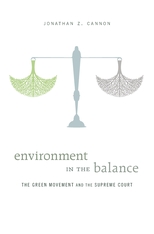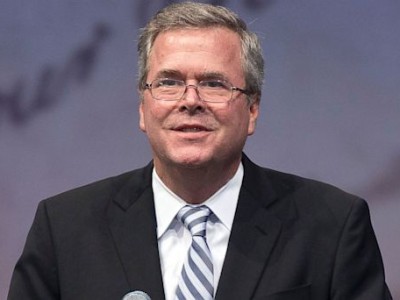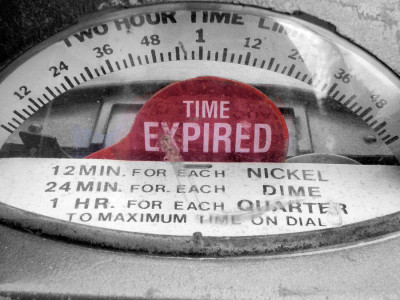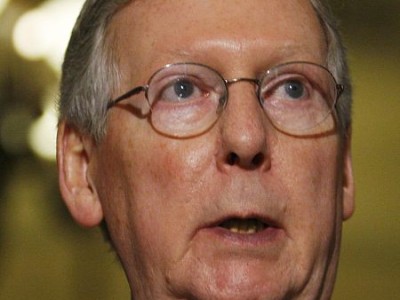Region: National
Climate Fatigue
You might be tired of climate change. But climate change isn’t tired of you.
I gather that people are tired of hearing about climate change. I’m tired of hearing about climate change, too. Sadly, Nature just doesn’t care that much about entertaining us. It’s going to be climate change this year, climate change next year, climate change the year after that . . . But don’t worry, it won’t …
Continue reading “Climate Fatigue”
CONTINUE READINGCulture Wars at the Supreme Court
A new book examines the roots of judicial conflict in environmental law.
Views on environmental issues are related to broader culture differences. According to social scientists, environmentalists tend to be egalitarian, believe in harmony with nature, and stress responsibility over autonomy. Their opponents, who are skeptical about regulation, tend to favor traditional hierarchies, believe in human mastery of nature, and stress autonomy over responsibility. Jon Cannon’s new book, Environment …
Continue reading “Culture Wars at the Supreme Court”
CONTINUE READINGIs Jeb Bush Listening to Andy Sabin?
Position on Climate Change Evolving
Jeb Bush is now “concerned” about climate change. He also believes the U.S. needs to work with other countries to “negotiate a way to reduce carbon emissions.” Though some environmental groups remain skeptical –largely because Bush also embraced natural gas as the primary tool to reduce U.S. …
Continue reading “Is Jeb Bush Listening to Andy Sabin?”
CONTINUE READINGCarbon Vouchers: A Small-Government Approach to Climate Action
How to limit climate change without giving the Feds enforcement powers or revenue.
What I’m going to sketch here isn’t a zero government approach. But the government’s role is very limited: federal agencies don’t do any enforcement and the government doesn’t touch any revenue from the scheme. So this approach deals with the concern that a carbon tax or something similar would either expand EPA’s ability to abuse …
Continue reading “Carbon Vouchers: A Small-Government Approach to Climate Action”
CONTINUE READINGSwinging Between Optimism and Pessimism on Climate Change
good news, bad news
Every day seems to bring new news about climate change, some of it encouraging and some of it so disheartening that doomsday feels around the corner. Here’s a catalogue of recent climate news, starting with the optimistic stories: Bloomberg news reports that the end of fossil fuels is in sight. The World Bank today announced …
Continue reading “Swinging Between Optimism and Pessimism on Climate Change”
CONTINUE READINGHas EPA’s Proposed NSPS Expired?
Responding to claims that EPA must withdraw its proposed rules to control power-plant GHGs under CAA § 111
Challenges to EPA’s emergent program to regulate greenhouse gas (GHG) emissions under Clean Air Act section 111 continue to mount. Recently, the Attorneys General of 19 states sent a joint letter to EPA arguing that because EPA failed to finalize its proposed New Source Performance Standard (NSPS) for GHG emissions within one year—as the Clean …
Continue reading “Has EPA’s Proposed NSPS Expired?”
CONTINUE READINGClimate Gag Rules and the First Amendment
Are climate gag rules constitutional? Sometimes yes, sometimes no.
There have been recent reports about state agencies that forbid employees from discussing climate change. Since this is obviously a restriction on speech, it’s natural to wonder what the First Amendment has to say on the subject. The answer depends in large part on the kind of employee speech at issue. Let’s being with a ban …
Continue reading “Climate Gag Rules and the First Amendment”
CONTINUE READINGIt’s a Wonderful Law?
A thought experiment about the role of the ESA in California water management
[This post is co-authored by A. Dan Tarlock, Distguished Professor of Law, IIT Chicago-Kent College of Law.] Remember the movie “It’s a Wonderful Life,” which shows up on TV every year at Christmas season? In it George Bailey, played by Jimmy Stewart, gets a great gift from Clarence, an angel-in-training who intervenes as George is …
Continue reading “It’s a Wonderful Law?”
CONTINUE READINGThe Case Against Sulking
States will only lose out if they refuse to cooperate with the Clean Power Plan.
Mitch McConnell has urged states to refuse to submit plans if the Clean Power Plan is upheld by the Court. He has been accused of inciting lawless behavior on the part of state governments. Let me come to his defense on this. (How often do I get to do that??) The states are under no legal obligation …
Continue reading “The Case Against Sulking”
CONTINUE READINGNews from a Warming World
Coal versus wind power; China’s air; poll results; Ted Cruz; arctic ice.
There’s been a lot of interesting environmental news recently, much of which seems to have gotten little notice. The topics range from U.S. wind power (growing) to U.S. coal power and Arctic sea ice (both shrinking), with a bit of Ted Cruz to spice things up. Here’s the round-up: Out with coal, in with wind. The …
Continue reading “News from a Warming World”
CONTINUE READING











